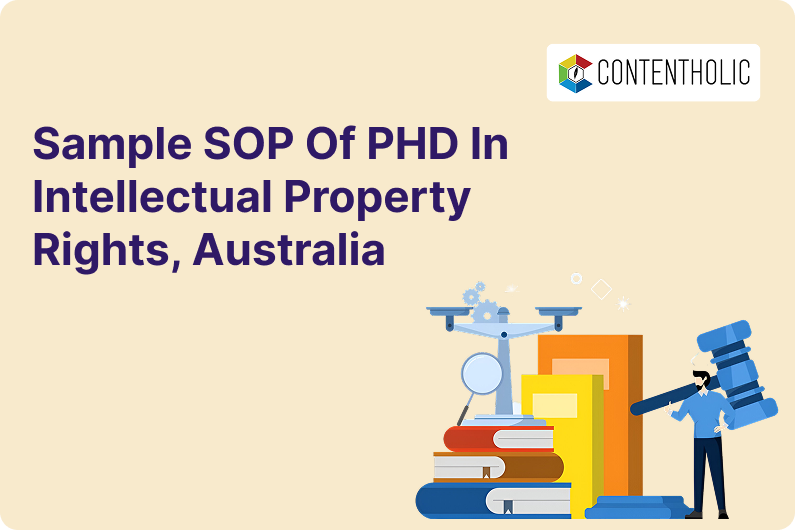Whether it’s AI-generated art, pharmaceutical patents, or indigenous cultural expressions, Intellectual Property Rights are at the core of how ideas are owned, shared, and protected. “Intellectual property is a key aspect for Economic Development.” This quote by an American scientist, Craig Venter, can help you understand how important intellectual property rights are. We live in a world where one can easily find copies of anything, especially creative products and ideas. This is why intellectual property (IP) rights were formulated so that a creator’s original piece of work could be protected and prevented from being copied. What are some examples of intellectual property rights? Patents, copyrights, and trademarks are some of the IP rights through which owners have exclusive rights over their work for a specified period so that they can benefit financially from it. Every now and then, you must have heard debates or news about how someone has copied someone’s literary or artistic work. With the rise in the number of cases, the importance of knowing about IP rights has increased manifold. When it comes to pursuing higher studies in this domain, a PhD in Intellectual Property Rights is a much sought-after course.
While doing your PhD, you will learn about the legal framework in the form of national and international laws concerning IP rights, and how you can effectively manage and enforce these rights. Among several study abroad destinations, Australia is one of the best countries that has universities such as Griffith and Monash University that offer exceptional programs for a PhD in Intellectual Property Law. Since this is a highly intensive research-based program, you have to give it your best shot while applying for it at a university. Scoring well in academics is not the only prerequisite. What you really have to focus on is your university application requirements, which consist of preparing a statement of purpose. In this blog, we have provided you with an intellectual property rights sample SOP so that you can get a clear understanding of what you should write in such a document. Apart from that, in this blog, we will also be focusing on how you can effectively write an SOP. If you face any other issues while writing, you can consult agencies like Contentholic, which provide one of the best SOP writing services.
How to Write a Well-Structured SOP for a PhD in Intellectual Property Rights?
In a statement of purpose, you need to write about yourself, your skills, interests, academic and professional background, why you wish to study this subject at a university in a particular country, and how this will help you achieve your goals. While writing an SOP for a PhD in Intellectual Property Law, you need to include the following details:
– The Opening Paragraph: Introduction
First, introduce yourself in a few words, followed by the program and university you have applied to. To make it an interesting read, you can insert a quote like the one in this blog’s beginning, or a personal anecdote that is related to intellectual property rights.
– Educational Background: The Foundation
While explaining your academic history, focus on explaining only those events or turning points that influenced your decision to pursue a PhD in this field. You can also explain certain specific achievements from your academic life in a way that displays your skills and abilities. This way, you can explain why you deserve to be a part of this program.
– Professional Experience: Theory in Action
If your present or current job is related to IP rights or laws, you can explain how this experience may provide you with a competitive edge over others. Write about what sort of roles or responsibilities you had. If you were part of any particular projects or had any significant experiences or accomplishments on the work front, which display your good traits and abilities, explain them in a way that highlights your worth for being a part of this program.
– PhD Intellectual Property: Studying at a university in Australia
This is the most crucial part of your SOP. You can explain how your initial interest in this subject began, whether it was any specific incident or a prominent figure in this field who inspired you to pursue this field. Highlight how the university you have applied to offers the best PhD in Intellectual Property Law program with a curriculum that aligns with your interests. Also, write about what made you choose Australia over other countries for PhD studies, and how gaining this kind of experience will benefit you in your future endeavors.
– Career Trajectory: Future Plans
In your SOP, write about your short and long-term goals, and how this program will help equip you with the necessary skills, knowledge, and competencies required for a professional to help in this field. You can also explain the various career opportunities that you can avail once you attain a PhD in Intellectual Property Rights, and how this degree will add more value to your profile.
– Closing Statement: Positive Affirmation
While coming to the last part of your SOP, don’t give it an abrupt end. Instead, you need to reiterate your enthusiasm for being a part of this program and how you look forward to having an enriching learning experience in Australia.
Mistakes that you should avoid: What not to write in an SOP?
An SOP presents you with an opportunity to stand out from the crowd, it is where you get to showcase your story, experiences, and potential to be a part of a university. Remember that even if the rest of your application is quite good and you have a brilliant academic record, a poorly written SOP can do more harm than good. Let us talk about the mistakes you should avoid in your SOP.
– Using Generic Statements
Avoid using statements that are most likely to be written by other applicants as well. The admissions committee reads various SOPs, you have to write in such a way that your SOP casts a positive impression on them. Be creative, and talk about why you’re interested in doing a PhD in Intellectual Property Law, what ignited your passion for this field, and how it evolved.
– Being Negative
Refrain from saying anything that puts you in a bad light. Always frame your thoughts and express yourself in a constructive, forward-looking manner. Don’t be extremely critical about any piece of information in your SOP.
– Describing Irrelevant Experiences
You have to explain only those incidents or experiences that align with your decision to pursue a PhD in this field. Every experience teaches us some lessons, which you can write about if they are related to your field of study.
– Not Giving it a Proper Read Through
Once you have written your SOP, ensure that you proofread or get it reviewed by a professional writer and rectify any errors or mistakes in it.
You can have a look at the sample SOP of PhD in Intellectual Property Property PDF given below, which has been written based on the assigned format and guidelines.
Below is the Sample SOP for PHD in Intellectual Property Rights, Australia
In order to find solutions to aid businesses and society, research plays a crucial role. Research, when conducted in a robust manner, can be converted in real-world outcomes, thus benefitting the society at large. I have observed technology taking newer forms, specifically in the field of law, which has taken the very concept of research to a whole new level over the years. The zeal to undertake research in the realm of law and make significant contributions in the same makes me opt for a Ph.D. program in Intellectual Property Rights from Griffith University, Australia.
My academic and professional conduits exhibit a constant upheaval, reflecting my deep-rooted interest in the field of law. I pursued bachelors in commerce post my matriculation, but as I came towards the completion of the course, I realized that Law was where my heart lied. I decided to start afresh with an LLB, from Punjab University, which, I must say, served me well. I was exposed to a multitude of subjects, which deepened my understanding of the various factors that governed the law. Out of those subjects, Intellectual Property Rights fascinated me the most; because of its power to facilitate innovation in the first place. It gives people the liberty to claim a right over their ideas and other forms of intellectual property, and protect them from theft. As I delved into its intricacies, I realized that I have the potential to do my bit and excel in this domain.
My learning wasn’t only enhanced by the lectures that I attended, but was enriched by the internship experiences that I gathered over the course of my bachelor’s program. I was absorbed as an intern in State Consumer Disputes Redressal Commission; wherein I attended Quasi-judicial proceedings and prepared a summary for the same. I was then hired by the State Legal Services Authority in Chandigarh, wherein I attended the proceedings of the Lok Adalat, attended sessions on meditation and reconciliation and also attended the observational home for juveniles. I was intrigued by the series of processes that were followed during such proceedings and was familiarized with the legal framework of the country.
I, then, joined the Information Commission Punjab, attended RTI proceedings and prepared a report on the RTI Act, 2005. I was also an intern for an advocate for a year, which taught me volumes about the functioning of the legislature, and gave me hands-on experience in dealing with legal issues. As I attended the proceedings with the advocate, I gained meaningful insights about substantive and procedural law. These internships equipped me with a vast set of skills, such as multitasking, handling public relations, and working in a team. These experiences proved to be fruitful and only had me yearning for more.
I was fascinated with the very concept of Intellectual Property Rights, and thus, decided to undertake a specialization in this subject as I enrolled for a master’s program from Amity University. During my master’s program, I was not only introduced to the hidden aspects of Intellectual Property Rights but was also given the opportunity to gain experience through the research project that I undertook. I undertook research on the topic “The Interface between Intellectual property Rights and Competition Law”, wherein I learnt how the two areas are directed towards achieving consumer welfare and are still at odds with one another. I researched on the points of conflict that arise between IRP and Competition Law and how a reasonability standard can be applied to facilitate reconciliation between the two. I was able to make significant inferences from the research, and my efforts were highly appreciated.
I have always had a passion for teaching, which I was able to fulfill as I was hired by the IEC University, Himachal Pradesh as an Assistant Professor. I have been teaching there for 11 months now, and have broadened my skill bracket by developing good communication and interpersonal skills. I knew that I had it in me to be a learned professional and specialize in Intellectual Property Rights by opting for a Ph.D. program. However, I realized that I was restricted in terms of resources and guidance that I require to give meaning to the research and contribute effectively to the surroundings. It was when I got to know about Griffith University.
While I was looking for programs that could be beneficial for enhancing my career prospects, I was tempted to apply to more than one program. In addition to my Ph.D., I wish to opt for a Graduate Diploma of Research Studies in the domain of business, to study the relationship between business and law, and how the law governs the way businesses are conducted. The curriculum of the diploma program appears to be promising and will play a crucial role during the course of my research. Successful completion of the diploma will serve as a ticket for a direct entry in the Ph.D. program. Out of the many universities offering similar programs, the one at Griffith University is ideal for my aspirations to take flight.
Griffith University is one of the most popular research universities in the sprawling land of Australia, which places a huge emphasis on research. It is one of a kind university that dedicates a quarter of its financial resources into the domain of research, housing state of the art technology and the best research professionals who are adept in their respective areas. I have chosen the topic “Novelty and Originality in Industrial Design: the Need for a Clear Distinction between Design and Copyright” to conduct my research in. Through this topic, I intend to gain insights into the meaning and applicability of these two terms, conduct an analysis and derive meaningful inferences for the same.
As I was going through the profiles of the various professors at Griffith University, that of Dr. Kanchana Kariyawasam fascinated me the most. She is an expert in the domain of Intellectual Property Rights and Consumer Law. Her affiliation with the ACIPA and Griffith Asia Institute and her unending list of publications make her an obvious choice, and her mentorship is what I need to be adept in my chosen field. I am certain that this Ph.D. program in Intellectual Property Rights is the ideal stepping stone for me to be a qualified research professional, while also enhancing my profile as a professor.
Australia is a country known for its excellence in education, multicultural environment and unending opportunities for research. While there are other countries offering the program, Australia is my first choice, because of the diversity that it exhibits. It is the ideal opportunity for me to be exposed to a vast spectrum of opportunities that lay ahead of me, and I wish to leave no stone unturned to make the most out of those. Post the completion of the program, I intend to return to my home country and apply the knowledge and skills to effectively contribute to the society, while resuming my role as a professor at a reputed university. It will be no short of a dream if I am granted this opportunity to take my specialization further and grow into bigger shoes. At the campus, I intend to make the best out of the resources at hand, while meaningfully contributing to the tide.
Download PDF
 Download PDF of Sample SOP for PHD in Intellectual Property Rights, Australia
Download PDF of Sample SOP for PHD in Intellectual Property Rights, Australia
Conclusion
This Sample SOP for PhD in Intellectual Property Rights from an Australian University reflects the enthusiasm, commitment and a strong academic background of the candidate. The above-mentioned sample SOP highlights the candidate’s professional aspiration in the field of intellectual property and its potential impact on society. Candidates emphasize their academic achievements and professional experiences that prepare them for PhD studies. In general, the SOP effectively conveys the candidate’s motivation, qualifications, and potential to succeed in a PhD program and contribute to the advancement of the field of intellectual property.
If you are struggling in writing an SOP on your own, then instead of taking a big risk you must avail professional SOP writing services from Contentholic. We have a team of SOP professional writers who are well-versed and well-experienced in writing an exceptional SOP which will be approval-worthy in the foreign universities. By taking their help you will definitely get shortlisted in your desired top-ranked international university.
Frequently Asked Questions (FAQs)
1. How long should an SOP for a PhD in Intellectual Property Rights be?
An SOP for a PhD in Intellectual Property Rights should be 1-2 pages long and consist of 1000-1200 words.
2. What is a PhD in Intellectual Property Law program?
While doing your PhD in Intellectual Property Law, you will learn about the national and international laws concerning IP rights and how you can effectively manage and enforce these rights.
3. How long will it take to complete a PhD in Intellectual Property in Australia?
The duration of a PhD Intellectual Property program in Australia is between 3-4 years.
4. Where can I find the best sample SOP for PhD programs?
Contentholic is one of the leading agencies in India that provides the best SOP writing services. You can visit our website and download our sample SOPs for PhD programs, such as the SOP for PhD in Molecular Cell Biology sample and the sample SOP for PhD in Education.
5. How will a sample SOP of a PhD in Intellectual Property in India benefit me?
Reading a sample SOP of a PhD in Intellectual Property, India, will familiarize you with the format, kind of language, and tone you should incorporate in your writing.
6. Can I copy from some examples of SOP for a PhD in Intellectual Property Law?
No, you can not copy from any of the intellectual property rights sample SOPs. This is because universities reject applications that have been copied from other sources and amount to plagiarism. You should write your SOP in your own words and explain your unique thoughts, ideas, and perspectives about the program.
7. What is the minimum education qualification required for a PhD in Intellectual Property?
You must have completed your Master’s in a discipline such as law, economics, or any other relevant subject with at least 55% marks from a recognized institute or a university to be eligible to apply for a PhD in Intellectual Property.






